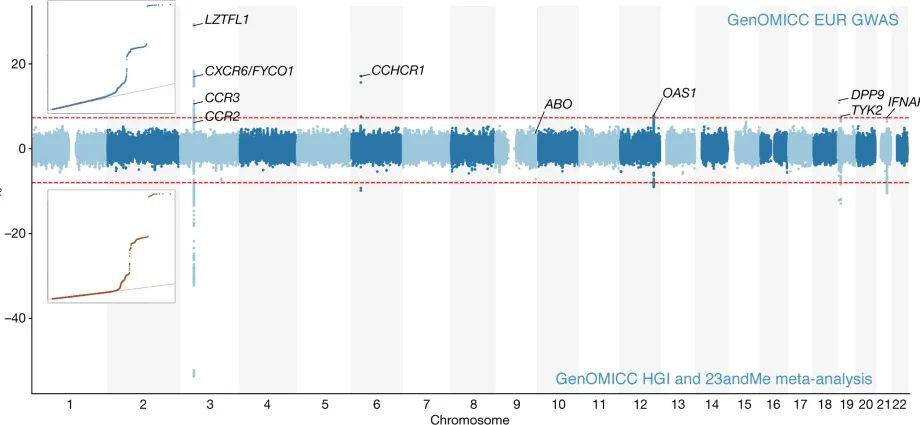Contents
Recent research suggests that our DNA influences how we get infected with the coronavirus. Shorter telomeres may be associated with slower lung regeneration capacity and more severe COVID-19 cases. The study was conducted by doctors from Madrid.
- Telomeres are used to protect our DNA. As we age, the telomeres get shorter and shorter
- Spanish doctors found people with shorter telomeres risk more severe cases of COVID-19
- The discovery may heal severe lung damage caused by the coronavirus
- You can find more about the coronavirus epidemic on the TvoiLokony home page
What are telomeres?
Telomeres are stretches of DNA that are at the end of each of the 46 chromosomes. These are “protective caps” that keep information about our genome. Telomeres are involved in cell division, but they shorten with each division, so they become shorter and shorter with age. Therefore, diseases of the genetic material, such as cancer, are more common in old age – telomeres are shorter then and protect our DNA less well.
Telomere length and the effects of COVID-19
The results of the research by scientists from the Spanish National Cancer Research Center (CNIO) and doctors from the Madrid field hospital have been published in the journal «Aging». A team led by Dr. Maria A. Blasco of CNIO discovered that there could be a link between reduced telomere length and severe COVID-19 cases.
The medics examined 89 patients (61 women and 28 men) who were admitted to a hospital in Madrid. It has been noted that symptoms similar to pulmonary fibrosis are a common effect of SARS-CoV-2 infection, which suggests that the infection reduces the regenerative capacity of the cells in this organ.
Lung fibrosis (one of the diseases associated with shorter telomeres) occurs when the cells in the lungs are damaged, their ability to regenerate decreases, and scars form. This causes lung tissue stiffness and difficulty breathing, which is a common clinical symptom in patients with severe COVID-19.
The surveyed patients underwent coronavirus infection with varying degrees of severity. The shortest telomeres were found in the most seriously ill, regardless of age. It also noted that the women in the study had, on average, longer telomeres than men, which may explain why the male part of the population is more likely to contract the coronavirus.
The discovery may heal severe lung damage after COVID-19
– It is known that telomeres can be rebuilt by telomerase. We previously found out that activation of telomerase has a therapeutic effect on short telomere diseases such as pulmonary fibrosis. It is therefore suspected that this therapy may help heal the lung damage to which people with COVID-19 infection are at risk The scientists said.
Have a question about the COVID-19 vaccine? Do you want to share your experiences of taking the vaccine? Write to us: [email protected]
However, as with other findings related to the effects of the coronavirus, it is too early to conclude. The Spanish study was conducted on a small sample of people, and correlation does not always mean causation. More research is needed to confirm the link between telomere length and severe COVID-19 cases.
The editorial board recommends:
- Sequence of vaccinations against COVID-19. Check which group you belong to [EXPLAINED]
- How to sign up for the COVID-19 vaccination?
- Where can I get vaccinated against COVID-19? List of vaccination points
The content of the medTvoiLokony website is intended to improve, not replace, the contact between the Website User and their doctor. The website is intended for informational and educational purposes only. Before following the specialist knowledge, in particular medical advice, contained on our Website, you must consult a doctor. The Administrator does not bear any consequences resulting from the use of information contained on the Website. Do you need a medical consultation or an e-prescription? Go to halodoctor.pl, where you will get online help – quickly, safely and without leaving your home.Now you can use e-consultation also free of charge under the National Health Fund.










